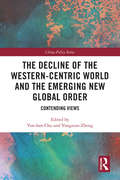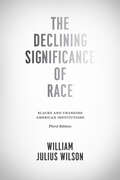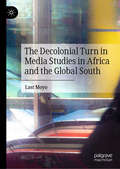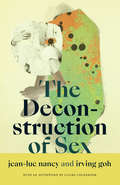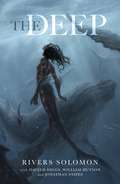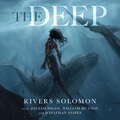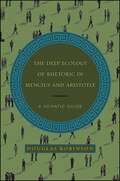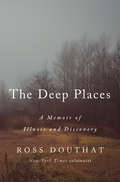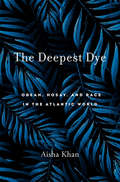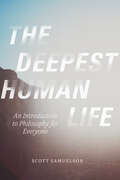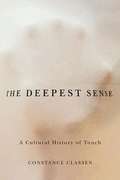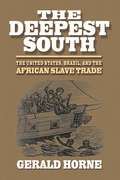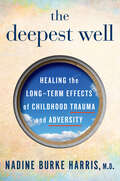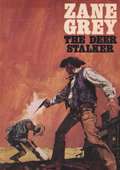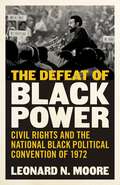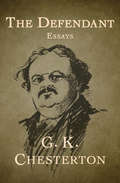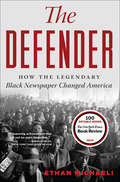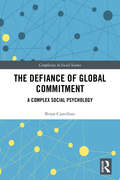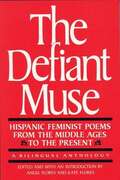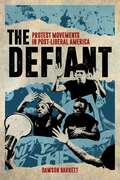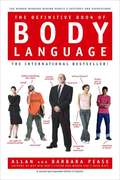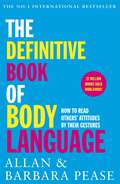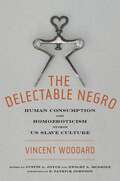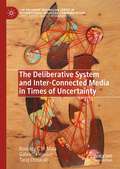- Table View
- List View
The Decline of the Traditional Pension
by George A. Sandy MackenzieThe traditional (final or average salary) pension that employers have provided their employees has suffered a huge decline in labor force coverage in the United Kingdom and the United States, and less severe declines in Canada and elsewhere. The traditional pension provides a precious measure of retirement security by paying retirees an annuity for life. This study compares developments in the countries just named and in Australia, Denmark, Germany, Japan, Netherlands, Sweden, and Switzerland to explain the forces behind the decline of the traditional pension and to contrast the experience of public sector employer-provided plans, where it remains dominant. Given the great value of the longevity insurance that the traditional plan provides, and the risks its diminished coverage entails, the book proposes a set of measures that either stem the decline or endow defined contribution pensions with some of the attributes of the traditional plan.
The Decline of the Western-Centric World and the Emerging New Global Order: Contending Views (China Policy Series)
by Yun-han Chu and Yongnian ZhengThe Western liberal democratic world order, which seemingly triumphed following the collapse of communism, is looking increasingly fragile as populists and nationalists take power in the United States, Europe and elsewhere, as the momentum of democratization in developing countries stalls, and as Western liberal establishments fail to deal with economic stagnation, worsening political polarization, social inequality, and migrant crises. At the same time there is a shift of economic power from the West towards Asia. This book explores these critical developments and their consequences for the world order. It considers how far the loss of the West’s power to dominate the world order, together with the relative decline of US power and its abdication of its global leadership role, will lead to more conflict, disorder and chaos; and how far non-Western actors, including China, India and the Muslim world, are capable of establishing visionary policy initiatives which reconfigure the paths and rules of economic integration and globalization, and the mechanisms of global governance. The book also assesses the sustainability of the economic rise of China and other non-Western actors, explores the Western liberal democratic order’s capacity for resilience, and discusses how far the outlook is pessimistic or optimistic.
The Declining Significance of Race: Blacks and Changing American Institutions, Third Edition
by William Julius WilsonThis new paperback edition includes a major new essay in which William Julius Wilson not only reflects on the debate surrounding his book, but also presents a provocative discussion of race, class, and social policy.
The Decolonial Turn in Media Studies in Africa and the Global South
by Last MoyoThis book develops a nuanced decolonial critique that calls for the decolonization of media and communication studies in Africa and the Global South. Last Moyo argues that the academic project in African Media Studies and other non-Western regions continues to be shaped by Western modernity’s histories of imperialism, colonialism, and the ideologies of Eurocentrism and neoliberalism. While Africa and the Global South dismantled the physical empire of colonialism after independence, the metaphysical empire of epistemic and academic colonialism is still intact and entrenched in the postcolonial university’s academic programmes like media and communication studies. To address these problems, Moyo argues for the development of a Southern theory that is not only premised on the decolonization imperative, but also informed by the cultures, geographies, and histories of the Global South. The author recasts media studies within a radical cultural and epistemic turn that locates future projects of theory building within a decolonial multiculturalism that is informed by trans-cultural and trans- epistemic dialogue between Southern and Northern epistemologies.
The Deconstruction of Sex (a Cultural Politics book)
by Jean-Luc Nancy Irving GohIn The Deconstruction of Sex, Jean-Luc Nancy and Irving Goh discuss how a deconstructive approach to sex helps us negotiate discourses about sex and foster a better understanding of how sex complicates our everyday existence in the age of #MeToo. Throughout their conversation, Nancy and Goh engage with topics ranging from relation, penetration, and subjection to touch, erotics, and jouissance. They show how despite its entrenchment in social norms and centrality to our being-in-the-world, sex lacks a clearly defined essence. At the same time, they point to the potentiality of literature to inscribe the senses of sex. In so doing, Nancy and Goh prompt us to reconsider our relations with ourselves and others through sex in more sensitive, respectful, and humble ways without bracketing the troubling aspects of sex.
The Deep
by Rivers Solomon Daveed Diggs William Hutson Jonathan SnipesWINNER OF THE LAMBDA LITERARY LGBTQ SCIENCE FICTION/FANTASY/HORROR AWARDThe water-breathing descendants of African slave women tossed overboard have built their own underwater society-and must reclaim the memories of their past to shape their future in this brilliantly imaginative novella inspired by the Hugo Award-nominated song "The Deep" from Daveed Diggs's rap group clipping.Yetu holds the memories for her people-water-dwelling descendants of pregnant African slave women thrown overboard by slave owners-who live idyllic lives in the deep. Their past, too traumatic to be remembered regularly, is forgotten by everyone, save one-the historian. This demanding role has been bestowed on Yetu.Yetu remembers for everyone, and the memories, painful and wonderful, traumatic and terrible and miraculous, are destroying her. And so, she flees to the surface, escaping the memories, the expectations, and the responsibilities-and discovers a world her people left behind long ago.Yetu will learn more than she ever expected to about her own past-and about the future of her people. If they are all to survive, they'll need to reclaim the memories, reclaim their identity-and own who they really are.Inspired by a song produced by the rap group Clipping for the This American Life episode "We Are In The Future," The Deep is vividly original and uniquely affecting.
The Deep
by Rivers Solomon Daveed Diggs William Hutson Jonathan SnipesThe water-breathing descendants of African slave women tossed overboard have built their own underwater society-and must reclaim the memories of their past to shape their future in this brilliantly imaginative novella inspired by the Hugo Award-nominated song "The Deep" from Daveed Diggs's rap group clipping.Yetu holds the memories for her people-water-dwelling descendants of pregnant African slave women thrown overboard by slave owners-who live idyllic lives in the deep. Their past, too traumatic to be remembered regularly, is forgotten by everyone, save one-the historian. This demanding role has been bestowed on Yetu.Yetu remembers for everyone, and the memories, painful and wonderful, traumatic and terrible and miraculous, are destroying her. And so, she flees to the surface, escaping the memories, the expectations, and the responsibilities-and discovers a world her people left behind long ago.Yetu will learn more than she ever expected to about her own past-and about the future of her people. If they are all to survive, they'll need to reclaim the memories, reclaim their identity-and own who they really are.Inspired by a song produced by the rap group Clipping for the This American Life episode "We Are In The Future," The Deep is vividly original and uniquely affecting.(P) 2019 Simon & Schuster Audio
The Deep Ecology of Rhetoric in Mencius and Aristotle: A Somatic Guide (SUNY series in Chinese Philosophy and Culture)
by Douglas RobinsonMencius (385–303/302 BCE) and Aristotle (384–322 BCE) were contemporaries, but are often understood to represent opposite ends of the philosophical spectrum. Mencius is associated with the ecological, emergent, flowing, and connected; Artistotle with the rational, static, abstract, and binary. Douglas Robinson argues that in their conceptions of rhetoric, at least, Mencius and Aristotle are much more similar than different: both are powerfully socio-ecological, espousing and exploring collectivist thinking about the circulation of energy and social value through groups. The agent performing the actions of pistis, "persuading-and-being-persuaded," in Aristotle and zhi, "governing-and-being-governed," in Mencius is, Robinson demonstrates, not so much the rhetor as an individual as it is the whole group. Robinson tracks this collectivistic thinking through a series of comparative considerations using a theory that draws impetus from Arne Naess's "ecosophical" deep ecology and from work on rhetoric powered by affective ecologies, but with details of the theory drawn equally from Mencius and Aristotle.
The Deep Places: A Memoir of Illness and Discovery
by Ross DouthatIn this vulnerable, insightful memoir, the New York Times columnist tells the story of his five-year struggle with a disease that officially doesn't exist, exploring the limits of modern medicine, the stories that we unexpectedly fall into, and the secrets that only suffering reveals.&“A powerful memoir about our fragile hopes in the face of chronic illness.&”—Kate Bowler, bestselling author of Everything Happens for a Reason In the summer of 2015, Ross Douthat was moving his family, with two young daughters and a pregnant wife, from Washington, D.C., to a sprawling farmhouse in a picturesque Connecticut town when he acquired a mysterious and devastating sickness. It left him sleepless, crippled, wracked with pain--a shell of himself. After months of seeing doctors and descending deeper into a physical inferno, he discovered that he had a disease which according to CDC definitions does not actually exist: the chronic form of Lyme disease, a hotly contested condition that devastates the lives of tens of thousands of people but has no official recognition--and no medically approved cure.From a rural dream house that now felt like a prison, Douthat's search for help takes him off the map of official medicine, into territory where cranks and conspiracies abound and patients are forced to take control of their own treatment and experiment on themselves. Slowly, against his instincts and assumptions, he realizes that many of the cranks and weirdos are right, that many supposed "hypochondriacs" are victims of an indifferent medical establishment, and that all kinds of unexpected experiences and revelations lurk beneath the surface of normal existence, in the places underneath.The Deep Places is a story about what happens when you are terribly sick and realize that even the doctors who are willing to treat you can only do so much. Along the way, Douthat describes his struggle back toward health with wit and candor, portraying sickness as the most terrible of gifts. It teaches you to appreciate the grace of ordinary life by taking that life away from you. It reveals the deep strangeness of the world, the possibility that the reasonable people might be wrong, and the necessity of figuring out things for yourself. And it proves, day by dreadful day, that you are stronger than you ever imagined, and that even in the depths there is always hope.
The Deepest Dye: Obeah, Hosay, and Race in the Atlantic World
by Aisha KhanHow colonial categories of race and religion together created identities and hierarchies that today are vehicles for multicultural nationalism and social critique in the Caribbean and its diasporas. When the British Empire abolished slavery, Caribbean sugar plantation owners faced a labor shortage. To solve the problem, they imported indentured “coolie” laborers, Hindus and a minority Muslim population from the Indian subcontinent. Indentureship continued from 1838 until its official end in 1917. The Deepest Dye begins on post-emancipation plantations in the West Indies—where Europeans, Indians, and Africans intermingled for work and worship—and ranges to present-day England, North America, and Trinidad, where colonial-era legacies endure in identities and hierarchies that still shape the post-independence Caribbean and its contemporary diasporas. Aisha Khan focuses on the contested religious practices of obeah and Hosay, which are racialized as “African” and “Indian” despite the diversity of their participants. Obeah, a catch-all Caribbean term for sub-Saharan healing and divination traditions, was associated in colonial society with magic, slave insurrection, and fraud. This led to anti-obeah laws, some of which still remain in place. Hosay developed in the West Indies from Indian commemorations of the Islamic mourning ritual of Muharram. Although it received certain legal protections, Hosay’s mass gatherings, processions, and mock battles provoked fears of economic disruption and labor unrest that lead to criminalization by colonial powers. The proper observance of Hosay was debated among some historical Muslim communities and continues to be debated now. In a nuanced study of these two practices, Aisha Khan sheds light on power dynamics through religious and racial identities formed in the context of colonialism in the Atlantic world, and shows how today these identities reiterate inequalities as well as reinforce demands for justice and recognition.
The Deepest Human Life: An Introduction to Philosophy for Everyone
by Scott SamuelsonThis accessible and thought-provoking introduction to philosophy shows how the eternal questions can shed light on our lives and struggles.These days, we generally leave philosophical matters to professional philosophers. Scott Samuelson thinks this is tragic, for our lives as well as for philosophy. In The Deepest Human Life, he restores philosophy to its proper place at the center of our humanity, rediscovering it as our most profound effort toward understanding, as a way of life that anyone can live. Exploring the works of some of history’s most important thinkers in the context of the everyday struggles of his students, Samuelson guides readers through the most vexing quandaries of existence—and shows just how enriching the examined life can be. Samuelson begins at the beginning: with Socrates, and the method he developed for approaching our greatest mysteries. From there he embarks on a journey through the history of philosophy, demonstrating how it is encoded in our own personal quests for meaning. Through heartbreaking stories, humanizing biographies, accessible theory, and evocative interludes like “On Wine and Bicycles” or “On Zombies and Superheroes,” Samuelson invests philosophy with the personal and vice versa. The result is a book that is at once a primer and a reassurance—that the most important questions endure, coming to life in each of us. Winner of the 2015 Hiett Prize in the Humanities
The Deepest Sense: A Cultural History of Touch
by Constance ClassenFrom the softest caress to the harshest blow, touch lies at the heart of our experience of the world. Now, for the first time, this deepest of senses is the subject of an extensive historical exploration. The Deepest Sense: A Cultural History of Touch fleshes out our understanding of the past with explorations of lived experiences of embodiment from the middle ages to modernity. This intimate and sensuous approach to history makes it possible to foreground the tactile foundations of Western culture--the ways in which feelings shaped society. Constance Classen explores a variety of tactile realms including the feel of the medieval city; the tactile appeal of relics; the social histories of pain, pleasure, and affection; the bonds of touch between humans and animals; the strenuous excitement of sports such as wrestling and jousting; and the sensuous attractions of consumer culture. She delves into a range of vital issues, from the uses--and prohibitions--of touch in social interaction to the disciplining of the body by the modern state, from the changing feel of the urban landscape to the technologization of touch in modernity. Through poignant descriptions of the healing power of a medieval king's hand or the grueling conditions of a nineteenth-century prison, we find that history, far from being a dry and lifeless subject, touches us to the quick.
The Deepest South: The United States, Brazil, and the African Slave Trade
by Gerald HorneA diplomatic history examining connections between the United States, Brazil, Africa, and Europe as they relate to the transatlantic slave trade. During its heyday in the nineteenth century, the African slave trade was fueled by the close relationship of the United States and Brazil. The Deepest South tells the disturbing story of how U.S. nationals—before and after Emancipation—continued to actively participate in this odious commerce by creating diplomatic, social, and political ties with Brazil, which today has the largest population of African origin outside of Africa itself. Based on extensive research from archives on five continents, Gerald Horne breaks startling new ground in the history of slavery, uncovering its global dimensions and the degrees to which its defenders went to maintain it.
The Deepest Well: Healing the Long-Term Effects of Childhood Adversity
by Nadine Burke HarrisA pioneering physician reveals how childhood stress leads to lifelong health problems and what we can do to break the cycle. Dr. Nadine Burke Harris was already known as a crusading physician delivering targeted care to vulnerable children. But it was Diego—a boy who had stopped growing after a sexual trauma—who galvanized her to dig deeper into the connections between toxic stress and the lifelong illnesses she was tracking among so many of her patients and their families. A survey of more than 17,000 adult patients’ “adverse childhood experiences,” or ACEs, like divorce, substance abuse, or neglect, had proved that the higher a person’s ACE score the worse their health—and now led Burke Harris to an astonishing breakthrough. Childhood stress changes our neural systems and lasts a lifetime. Through storytelling that delivers both scientific insight and moving stories of personal impact, Burke Harris illuminates her journey of discovery, from research labs nationwide to her own pediatric practice in San Francisco’s Bayview-Hunters Point. For anyone who has faced a difficult childhood, or who cares about the millions of children who do, the innovative and acclaimed health interventions outlined in The Deepest Well will represent vitally important hope for change.
The Deer Stalker: A Western Story
by Zane GreyOriginally published in 1925, in THE DEER STALKER, Zane Grey readers will find all they have come to expect from their favorite Western author—swift action, magnificent descriptions of the desert and canyon country, plus the added valiant effort of a ranger’s struggle to save the doomed herd of deer on the Buckskin range.Zane Grey makes the reader see this colorful Arizona country, makes him feel something of the awe that is the inevitable reaction of man to the majesty of one of nature’s miracles, makes him smell the tang of mingled pine and sagebrush, makes him thrill to the heroic struggle of a few dedicated men as they battle to undo the harm of the willful and greedy.
The Defeat of Black Power: Civil Rights and the National Black Political Convention of 1972
by Leonard N. MooreFor three days in 1972 in Gary, Indiana, eight thousand American civil rights activists and Black Power leaders gathered at the National Black Political Convention, hoping to end a years-long feud that divided black America into two distinct camps: integrationists and separatists. While some form of this rift existed within black politics long before the 1968 assassination of Dr. Martin Luther King, Jr., his death—and the power vacuum it created—heightened tensions between the two groups, and convention leaders sought to merge these competing ideologies into a national, unified call to action. What followed, however, effectively crippled the Black Power movement and fundamentally altered the political strategy of civil rights proponents. An intense and revealing history, Leonard N. Moore’s The Defeat of Black Power provides the first in-depth evaluation of this critical moment in American history.During the brief but highly charged meeting in March 1972, attendees confronted central questions surrounding black people’s involvement in the established political system: reject or accept integration and assimilation; determine the importance or futility of working within the broader white system; and assess the perceived benefits of running for public office. These issues illuminated key differences between integrationists and separatists, yet both sides understood the need to mobilize under a unified platform of black self-determination. At the end of the convention, determined to reach a consensus, officials produced “The National Black Political Agenda,” which addressed the black constituency’s priorities. While attendees and delegates agreed with nearly every provision, integrationists maintained their rejection of certain planks, namely the call for a U.S. constitutional convention and separatists’ demands for reparations. As a result, black activists and legislators withdrew their support less than ten weeks after the convention, dashing the promise of the 1972 assembly and undermining the prerogatives of black nationalists. In The Defeat of Black Power, Moore shows how the convention signaled a turning point for the Black Power movement, whose leaders did not hold elective office and were now effectively barred access to the levers of social and political power. Thereafter, their influence within black communities rapidly declined, leaving civil rights activists and elected officials holding the mantle of black political leadership in 1972 and beyond.
The Defendant: Essays
by G. K. ChestertonG. K. Chesterton's hilarious defense . . . of just about anything In this hodgepodge of early musings, a young G. K. Chesterton operates under the conceit that many objects in the human purview--ranging from the humdrum and mundane to the outright ridiculous--could use the advocacy of a good apologist every once in a while. This lively book, filled with essays from Chesterton's days as a budding journalist for the Speaker, vindicates everything from skeletons to detective stories, from patriotism to penny dreadfuls. An ardent defender of the indefensible, Chesterton earns his reputation as the "prince of paradox" in The Defendant and reminds us why he is often regarded as one of the greatest moral thinkers of his age. This ebook has been professionally proofread to ensure accuracy and readability on all devices.
The Defender: How the Legendary Black Newspaper Changed America
by Ethan MichaeliThis &“extraordinary history&” of the influential black newspaper is &“deeply researched, elegantly written [and] a towering achievement&” (Brent Staples, New York Times Book Review). In 1905, Robert S. Abbott started printing The Chicago Defender, a newspaper dedicated to condemning Jim Crow and encouraging African Americans living in the South to join the Great Migration. Smuggling hundreds of thousands of copies into the most isolated communities in the segregated South, Abbott gave voice to the voiceless, galvanized the electoral power of black America, and became one of the first black millionaires in the process. His successor wielded the newspaper&’s clout to elect mayors and presidents, including Harry S. Truman and John F. Kennedy, who would have lost in 1960 if not for The Defender&’s support. Drawing on dozens of interviews and extensive archival research, Ethan Michaeli constructs a revelatory narrative of journalism and race in America, bringing to life the reporters who braved lynch mobs and policemen&’s clubs to do their jobs, from the age of Teddy Roosevelt to the age of Barack Obama. &“[This] epic, meticulously detailed account not only reminds its readers that newspapers matter, but so do black lives, past and present.&” —USA Today
The Defiance of Global Commitment: A Complex Social Psychology (Complexity in Social Science)
by Brian CastellaniThe Brexit vote; the election of Trump; the upsurge of European nationalism; the devolution of the Arab Spring; global violence; Chinese expansionism; disruptive climate change; the riotous instabilities of the world capitalist system…While diverse in nature, these events share a common denominator: they are less a failure of policy, and more a complex social psychological reaction to globalization, the result of which presently threatens our survival on Earth. Based on a critical reading of Freud’s Civilization and its discontents, The defiance of global commitment constructs a complex social psychology of how people all over the world are addressing globalization. Drawing on the latest advances in the cognitive, social, and complexity sciences, this timely volume presents a global model of defiance and the triangular tensions between nostalgic retreat, global aggression, and civil society, as manifested in forms ranging from nostalgic resentment and LGBTQI issues to racism and ecological aggression. Revealing how globalization and its discontents manifest the darker reaches of the human psyche and its conflicted relations with others, this insightful monograph will appeal to undergraduate and postgraduate students, as well as postdoctoral researchers, interested in fields such as globalization studies, complexity sciences and social psychology.
The Defiant Muse: A Bilingual Anthology
by Kate Flores Angel FloresThe poets write of love and friendship, revolution and peace, religion, nature, isolation, work, and family. The Dutch, French, German, and Italian volumes represent their respective countries.
The Defiant: Protest Movements in Post-Liberal America
by Dawson BarrettIn the tradition of Howard Zinn’s A People’s History of the United States, an engaging account of the last half-century of political discontent The history of the United States is a history of oppression and inequality, as well as raucous opposition to the status quo. It is a history of slavery and child labor, but also the protest movements that helped end those institutions. Protesters have been the driving force of American democracy, from the expansion of voting rights and the end of segregation laws, to minimum wage standards and marriage equality. In this exceptional new book, Dawson Barrett calls our attention to the post-1960s period, in which US economic, cultural, and political elites turned the tide against the protest movement gains of the previous forty years and reshaped the ability of activists to influence the political process.For much of the last half-century, policymakers in both major US political parties have been guided by the “pro-business” tenets of neoliberalism. Dubbed “casino capitalism” by its critics, this economy has ravaged the environment, expanded the for-profit war and prison industries, and built a global assembly line rooted in sweatshop labor, while more than doubling the share of American wealth and income held by the country’s richest 1 percent. The Defiant explores the major policy shifts of this new Gilded Age through the lens of dissent—through the picket lines, protest marches, and sit-ins that greeted them at every turn. Barrett documents these clashes at neoliberalism’s many points of impact, moving from the Arizona wilderness, to Florida tomato fields, to punk rock clubs in New York and California—and beyond. He takes readers right up to the present day with an epilogue tracing the Trump administration’s strategies and policy proposals, and the myriad protests they have sparked. Capturing a wide range of protest movements in action—from environmentalists’ tree-sits to Iraq War peace marches to Occupy Wall Street, #BlackLivesMatter, and more—The Defiant is a gripping analysis of the profound struggles of our times.
The Definitive Book of Body Language
by Barbara Pease Allan PeaseAvailable for the first time in the United States, this international bestseller reveals the secrets of nonverbal communication to give you confidence and control in any face-to-face encounter - from making a great first impression and acing a job interview to finding the right partner. It is a scientific fact that people's gestures give away their true intentions. Yet most of us don't know how to read body language and don't realize how our own physical movements speak to others. Now the world's foremost experts on the subject share their techniques for reading body language signals to achieve success in every area of life. Drawing upon more than thirty years in the field, as well as cutting-edge research from evolutionary biology, psychology, and medical technologies that demonstrate what happens in the brain, the authors examine each component of body language and give you the basic vocabulary to read attitudes and emotions through behavior. Discover: How palms and handshakes are used to gain control; The most common gestures of liars; How the legs reveal what the mind wants to do; The most common male and female courtship gestures and signals; The secret signals of cigarettes, glasses, and makeup; The magic of smiles, including smiling advice for women; How to use nonverbal cues and signals to communicate more effectively and get the reactions you want. Filled with fascinating insights, humorous observations, and simple strategies that you can apply to any situation, this intriguing book will enrich your communication with and understanding of others as well as yourself.
The Definitive Book of Body Language: How to read others' attitudes by their gestures
by Barbara Pease Allan PeaseThis international bestseller explains everything you need to know about body language, how to read it, and how to put your best self forwards.What people say is often very different to what they think or feel.Now, with THE DEFINITIVE BOOK OF BODY LANGUAGE, you can learn to read others people's thoughts by their gestures. It sounds implausible, but body language is easy to pick up and fun to use. Find out:How to tell if someone is lyingHow to make yourself likeableHow to get co-operation from other peopleHow to interview and negotiate successfullyHow to choose a partnerLearn the secrets of body language with Allan and Barbara Pease, bestselling authors of WHY MEN DON'T LISTEN AND WOMEN CAN'T READ MAPS.
The Delectable Negro: Human Consumption and Homoeroticism within US Slave Culture (Sexual Cultures #34)
by E. Patrick Johnson Vincent Woodard Dwight McBride Justin A JoyceA groundbreaking study of the connections between homoeroticism, cannibalism, and cultures of consumption in American literature and US slave culture. Scholars of US and transatlantic slavery have largely ignored or dismissed accusations that Black Americans were cannibalized. Vincent Woodard takes the enslaved person&’s claims of human consumption seriously, focusing on both the literal starvation of the slave and the tropes of cannibalism on the part of the slaveholder, and further draws attention to the ways in which Blacks experienced their consumption as a fundamentally homoerotic occurrence. The Delectable Negro explores these connections between homoeroticism, cannibalism, and cultures of consumption in the context of American literature and US slave culture. Utilizing many staples of African American literature and culture, such as the slave narratives of Olaudah Equiano, Harriet Jacobs, and Frederick Douglass, as well as other less circulated materials like James L. Smith&’s slave narrative, runaway slave advertisements, and numerous articles from Black newspapers published in the nineteenth century, Woodard traces the racial assumptions, political aspirations, gender codes, and philosophical frameworks that dictated both European and white American arousal towards Black males and hunger for Black male flesh. Woodard uses these texts to unpack how slaves struggled not only against social consumption, but also against endemic mechanisms of starvation and hunger designed to break them. He concludes with an examination of the controversial chain gang oral sex scene in Toni Morrison&’s Beloved, suggesting that even at the end of the twentieth and beginning of the twenty-first century, we are still at a loss for language with which to describe Black male hunger within a plantation culture of consumption. Praise for The Delectable NegroWinner of the 2015 LGBT Studies Award presented by the Lambda Literary Foundation &“A bold and brilliant book.&”—Carla L. Peterson, author of Black Gotham: A Family History of African Americans in Nineteenth-Century New York City &“With unflinching clarity, The Delectable Negro exposes and examines the pervasive cultural fantasies that have rendered the enslaved black body into a consumable object from the eighteenth century to the present…. Its powerful insights will continue to generate new lines of important inquiry for years to come.&”—American Historical Review
The Deliberative System and Inter-Connected Media in Times of Uncertainty (The Palgrave Macmillan Series in International Political Communication)
by Rousiley C. Maia Gabriella Hauber Tariq ChoucairAdopting a systemic perspective, this book explores media-based communication and reason-giving as a linkage process that transcends time and space. Arguments, reasoning perspectives and emotional concerns link elites’ and citizens’ political judgement within and across a set of interrelated arenas in the political system.

